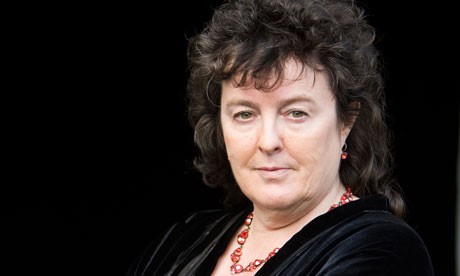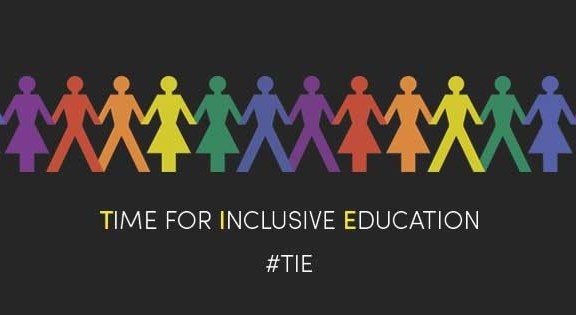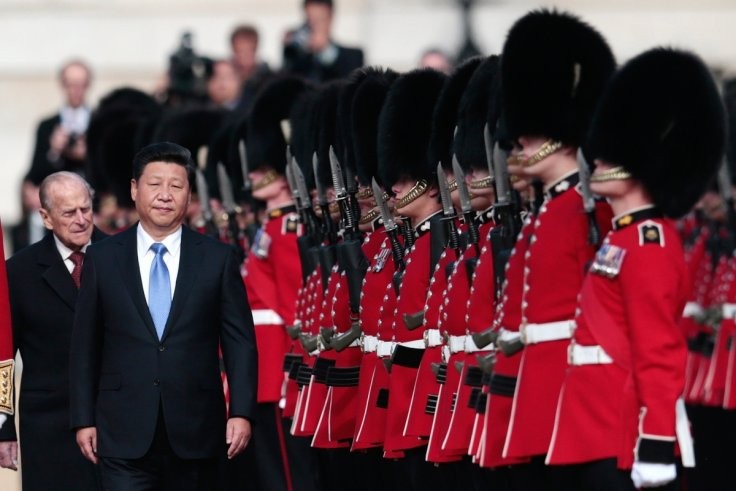All posts by Mr Coles
Guide to Reading for Understanding, Analysis and Evaluation (UAE)
Here you go folks.
This powerpoint outlines how to answer all the Close Reading questions!
TC – N5 English – UAE – 01 – UAE 3 – HOWTO All Types of Questions
Discursive Essays
Here are resources on how to write a discursive essay.
Remember, you should choose an issue which is important to you – one which you are passionate about.
Powerpoint: Planning a Discursive Essay (Skills and Criteria)
Word Document: Planning a Discursive Essay (Structure and Examples)
Links to other sites:
Writing Commons – Many different articles on how to improve your writing.
Relevant and Reliable Sources
Relevance
Always think:
- What information do you want from the source?
- Look initially at the title of the book or article, the contents page and the index if they are present.
- Do they indicate that the information you are looking for is here?
- If so your next step is to skim-read the information to see if it is useful.
- If it seems to be, read over it again carefully.
Reliability
When you are first presented with a written source of information you should consider whether the information is:
- Accurate
- Biased or balanced
- Supported by evidence
- Up to date
Internet Research
When searching on the internet it is particularly important to ensure the reliability of your sources. It can be hard to tell.
- Always check the information on more than one site.
- Access reliable websites e.g.
- newspapers;
- BBC,
- Government web pages etc.
- Use key words to focus on relevant and reliable information and narrow your search.
Remember, to research both sides of the debate. Look at sites that contain arguments both for and against.
Recording Sources
It is essential that you give credit to information and ideas from other sources.
At the end of your essay you must provide a bibliography, or a list of sources you have consulted during your research.
Make sure you keep this record as you go – you may find it very difficult to go back and find sources later.
Plagiarism
You must not copy chunks of information from any text, nor can you copy or paste from a source to a word document.
This is ‘plagiarism’: taking ideas/ passages / sentences from someone else’s work and presenting them as your own.
Instead you must:
- Summarise: sum up the key points, in your own words
- Paraphrase: write down someone else’s ideas in your own words.
- Quote: making sure you reference the material, either with a footnote or in brackets after the actual quotation.
Also, ensure that you lay out the quotation correctly. E.g.:
An article in the Scotsman newspaper suggests that some bar owners allow young people to buy alcohol. However, in that piece one owner said, “it is difficult to tell if young people are over 18”.
If in doubt, come and ask!
NFF Week 7 – TIE campaign’s LGBTI rights mission is a breath of fresh air
Cat Boyd (The National, Scotland)
NOVEMBER 17TH, 2015
JORDAN Daly is 20 years old, strikingly handsome and instantly likeable, a student who’s unquestionably bright but not remotely staid or posh. He’s also gay. In many Scottish schools, that’s a problem: so much so that Jordan, aged 12, planned to save up his pocket money to buy rope to hang himself. “I planned to kill myself because I hated myself so much”, he now admits matter-of-factly. Telling that story might seem like shock tactics, but Jordan offers it to stress how typical his experience is: 26 per cent of LGBTI school students actually attempt suicide, and many more contemplate it.
Today, Jordan runs Time for Inclusive Education (TIE), a campaign that seeking to bring these shocking facts to light across schools in Scotland. He co-founded TIE with Liam Stevenson, 37, a hunky father to a four-year-old girl. Liam may look like a gay pin-up, but he talks and acts like a stereotypical heterosexual tanker driver, because, well, he’s a heterosexual tanker driver: he even offers me DIY advice.
The two are best friends, but they’ve only known each other for a year. TIE is the latest innovative campaign to grow out of the hothouse atmosphere of the 2014 independence referendum. Liam, a seemingly macho working-class guy, provided an unlikely outlet for Jordan’s stories about his traumatic experience with sexuality. “It wasn’t until I met Liam that I was able to properly talk about what I went through when I was 12,” he told me. “I don’t want to be defined by what happened to me, but if it helps one kid in the school, then I’m happy to talk about it. This happened to me eight years ago, and today I’m receiving emails from kids who are going through the exact same thing. Nearly a decade has gone by and nothings really changed.” Liam interrupts for emphasis: “Yep, no progress at all”.
Of course, officially, there’s been lots of progress. In 1980, sex between two men of any age was still illegal in Scotland. By comparison, it was decriminalised in Italy in 1890, Denmark in 1933, Iceland in 1940, Sweden in 1944, England and Wales in 1967, West Germany in 1969, and Norway in 1972. Even in 2000, when I was in S4 at Holy Cross High School in Hamilton, a significant portion of Scotland was backing Margaret Thatcher’s homophobic Section 28 law against “teaching homosexuality” in schools. Now I’m 30, and Scotland has just been voted “the best country in Europe for LGBTI equality”. On the surface, there’s progress.
Sadly, though, LGBTI in schools is still something of a taboo subject. The campaign to repeal Section 28 was ultimately victorious, but it also revealed a very ugly side of Scottish politics. Some of the worst bigotry came from Scotland’s centre-left institutions. Michael Connarty, until recently a Falkirk Labour MP, warned of “active militant gays” among the teaching profession, who, in his experience, “groomed young boys who seemed to be leaning in a particular direction”.
And of course, there’s Brian Souter. Souter, who bankrolled the SNP until recently and was described as “one of the outstanding entrepreneurs of his generation” by Alex Salmond, shelled out £1 million for a campaign to keep Section 28. Although the SNP didn’t take Souter’s side on that issue, his financing of the party and his Keep the Clause campaign are still embarrassing for many Scottish progressives.
HARDLY anyone defends homophobic bullying anymore. But the issue is suppressed for a few reasons. First, we blame the bullies themselves, not the institutions and the people in power. Second, a repressive attitude prevails which says that homosexuality is fine for other people in private, but intolerable in public, and certainly not in front of “my children”. Third, issues like gay marriage are still seen as private moral matters rather than ideological left-right issues. Labour politicians such as Michael McCann and SNP figures like John Mason still trample around “voting with their conscience” against gay rights; and too often party leaders overlook prejudice in the name of principle.
I find Liam and Jordan likeable because they confront all the stereotypes about the issue. There’s nothing “politically correct” about them: they don’t sound like an Oxbridge-educated Radio 4 panel, or a mealy-mouthed quango. Their graphic design is hip and approachable, unlike the standard leftist models. Liam challenges the idea that only LGBTI people need to care about “gay issues”, showing it’s a campaign everyone should support. A year ago, before he discovered the facts, he was, by his own admission, a typical “bloke”; in many ways, he still is. Meet him yourself if you don’t believe me.
There’s a danger that Scotland, having made some legal reforms, falls into a self-congratulatory myth that there’s “no problem here”, or that our institutions are inherently progressive. There’s also the danger that LGBTI politics goes establishment. From the corporate takeover of Pride to the installation of standard government “equality initiatives”, this danger is everywhere. We risk forgetting where rights come from: having won them from below, we assume they’ll get handed down from the top in future. TIE offers a different model. Referencing everyone from Harvey Milk to James Connolly, the three of us talk about direct action, struggles, gay rights history.
I ask Liam and Jordan for a final message. Jordan’s is cautiously optimistic: “things will get better,” he says. “But really, saying that isn’t good enough. I want young people to know that there are a squad of people out there who are fighting to make it better right now, not just in the future.” Liam simply tells me: “Homophobia kills”.
They’re both right. Homophobia is killing kids; it’s also damaging their lives and their education. Much of that homophobia is silently handed down by parents and institutions. But Jordan is also right: history is on our side, if we’re conscious of it. TIE represents precisely the principles that will ensure a victory for justice: challenging injustice without hectoring the unconvinced, appealing to ordinary people without selling out. Scottish politics can learn a lot from their example.
Animal Farm Resources
To help you with revision, I will be including links to different materials and resources. Some of these I have produced, some are from other teachers, some are from blogs and other websites.
Powerpoint: Background to the Russian Revolution
Powerpoint: Background to George Orwell
Word Document: Key Napoleon Quotations
Word Document: Key Snowball Quotations
Word Document: Revision Questions
Film: The Russian Revolution, on Youtube: Part 1, Part 2, Part 3
You could also watch other good films on the Russian Revolution, e.g. Doctor Zhivago, (1965), Reds (1981), Enemy at the Gates (2001: trailer)
Film: Animal Farm (1954, animated) on YouTube
Film: Animal Farm (1999, live action) on YouTube
Study Notes: Animal Farm from SparkNotes
Quiz: Animal Farm Character Descriptsion, Quizlet
Quiz: Animal Farm Vocabulary, memrise (you need to create an account)
NFF Week 6 – Martin Shkreli: America’s most despised man who makes AIDS sufferers pay $750 per pill
UNTIL a few days ago few people had heard of Martin Shkreli, a 32-year-old former hedge fund investor from New York.
Now he has found himself catapulted into global notoriety after the pharma-ceutical company Turing, where he is chief executive, this week increased the price of the life-saving drug Daraprim by a whopping 5,000 per cent.
Last month the company bought the rights to the drug, which is used mainly to treat toxoplasmosis, a parasitic infection that affects people with compromised immune systems, including AIDS and HIV patients, as well as cancer sufferers.
Some patients take between five and 10 tablets every day, meaning this price hike – which only affects patients in the US – may condemn thousands of Americans either to bankruptcy or a shorter life expectancy
And yet it costs less than 75p to make each Daraprim pill, which was first approved by the US Food and Drug Administration (FDA) in the 1950s.
Speaking on Bloomberg News earlier this week Shkreli attempted to defend himself saying that the paltry production costs don’t include the price of marketing and distribution.
He said: “If there was a company that was selling an Aston Martin at the price of a bicycle and we bought that company and charged Toyota prices I don’t think that should be a crime. We’re simply charging the right price. We have to turn a profit.”
Shkreli added that these profits will be used to make improvements to the 62-year-old drug recipe and that it is “still underpriced relative to its peers”.
His explanation is unlikely to satisfy his critics. They have labeled him a “morally bankrupt sociopath”, a “scumbag” and “everything that is wrong with money, medicine and politics in America”. Hillary Clinton this week joined the chorus, declaring: “Price gouging like this in the specialty drug market is outrageous. Tomorrow I’ll lay out a plan to take it on.”
Yet Shkreli’s response to his online critics was to tweet defiant lyrics from a song by rapper Eminem. (“And it seems like the media immediately points a finger at me/ So I point one back at ’em, but not the index or pinkie.”)
Judith Aberg, a spokeswoman for the HIV Medicine Association, said that even patients with insurance to cover some of the inflated cost of Daraprim could end up more than £100 per pill out of pocket now that the price has gone up from £8.78 to a staggering £488.26 per pill. ($750 in U.S. currency).
This month Aberg joined forces with the Infectious Diseases Society of America to pen an open letter to Shkreli. In it they said that the proposed massive price increase on Daraprim was “unjustifiable for the medically vulnerable patient population” and was “unsustainable for the healthcare system”.
Shkreli has long courted controversy. The son of Albanian and Croatian immigrants he grew up in a working-class community in Brooklyn, New York and subsequently gained a business degree in 2004.
Aged 17 he began an internship at a hedge fund founded by American TV personality and best-selling author Jim Cramer and two years later he launched his own such fund. But it closed a year later after a £1.5million lawsuit from Lehman Brothers which collapsed before a verdict was reached.
We have to turn a profit
Undeterred Shkreli then set up MSMB Capital Management in 2008. It funded his first foray into the pharmaceutical industry in 2011 when he founded a biotech firm called Retrophin, which focused on producing medicines for rare diseases.
Yesterday it also emerged that Shkreli is a repeat offender when it comes to inflating the price of drugs. In May 2014 Retrophin acquired the rights to sell a drug named Thiola which is used to treat a rare and incurable kidney condition known as cystinuria. Many sufferers have to take the drug from early childhood.
Shkreli’s company promptly increased the price of Thiola from £1 per pill to more than £20 a pill.
In September 2014 Shkreli was ousted as head of the company amid allegations of misuse of company money and is now being sued by Retrophin for £43million. He denied the accusations, claiming: “They are sort of concocting this wild and crazy and unlikely story to swindle me out of the money.”
His integrity may be shrouded in doubt but Shkreli’s ego and ambition remain intact and in February this year he launched his present company Turing.
In the past 48 hours he has sought to address the Daraprim debacle, claiming that he will now lower the price of the drug to make it more affordable. But he has not revealed exactly what the new cost to patients will be.
Whatever the adjustment to the figures it has been called an empty gesture that has come too late. There was an insight on Shkreli’s now-deleted profile on a dating website called OK Cupid in which he described himself as “intelligent, handsome and all sorts of other good qualities”.
“I am endlessly entertaining, providing comedic relief and artistic thought in one convenient package. What a catch!” He also revealed he spends a lot of time thinking about “human suffering”.
The suffering of those families with a loved one who is reliant on Daraprim doesn’t seem to have occurred to him, however, nor the huge financial investment that they now face in order to maintain their health.
NFF Week 5 – Will it be win-win on Britain’s big China gamble?
“State visit” doesn’t do justice to what we’ve seen this week.
The Chinese media exulted that their president got a ‘redder than red carpet welcome’ in the UK and certainly Xi Jinping rarely stepped off the carpet, or went anywhere without a royal at his side.
And if it wasn’t the Queen, the Duke and Duchess of Cambridge or Prince Andrew, then there was always the Prime Minister or the Chancellor ready to stand in.
All of this demonstrated just how much Britain is staking on this relationship. The United States may be growing more cagy in its dealings with the world’s great rising power, but the UK is moving in the other direction, prepared to take risks to “run towards China”.
The promised “golden era” with China is a strategic shift and the British effort to get it off to a good start produced spectacular picture opportunities for President Xi and a lot of behind the scenes anxiety for his hosts, his enormous entourage, and frankly, for journalists like me.
Of course there was no meaningful access for me or any other British journalist to the Chinese president himself. Chinese officials hate surprises and an unscripted interview with a real reporter is their definition of prolonged and nasty surprise.
Information bubble
Instead there was a photo opportunity in Downing Street that both governments chose to call a “press conference”. One question was allowed from the British media and President Xi had clearly prepared his answer.
We weren’t told until minutes beforehand that the President would actually attend. I had messaged a Chinese Foreign Ministry official asking for guidance and heard nothing until four hours after the news conference took place when I got a reply which read: “I don’t have any information about that.”
Which makes the point that even when things have happened on live TV they haven’t officially “happened” for those inside the Chinese information bubble until someone senior has agreed it.
The important message President Xi wanted to send home to the Chinese public was not conveyed in a press conference anyway, but in the wall to wall TV pictures.
They should observe that in President Xi they have a modern day emperor who bestrides the globe, and they should reflect that he has restored China to its rightful place in the world.
Pomp and propaganda
For those whose historical awareness might be befuddled by all the tiaras and trumpets, the Communist Party flagship People’s Daily provided a front page editorial to drive home the message: “The national humiliation that China suffered in modern times began with the rumble of cannon from British warships.
“But times have changed. China does not bully those past aggressors with its strength.”
Talking about reporting of the visit, I came in for criticism from one Chinese publication, which accused me of “skewed and hysterical propaganda” after the BBC broadcast a TV documentary I made about President Xi himself.
But all is not as it seems in the world of propaganda. As I was rushing from one event to another, a reporter for one of China’s biggest state media organisations grabbed me by the arm, not to berate me but to say he was a fan.
In the British camp, critics of their government’s campaign to become China’s “best partner in the West” drew attention to Beijing’s censorship and the authoritarian political culture.
By the end of the visit some were even angrier than they had been at the start, complaining that at every venue, human rights protesters were penned behind police barriers, obscured by giant Chinese flags and drowned out by the cymbals and drums of the Chinese patriots.
Even British officials who have seen many world leaders come and go said the security for President Xi was on a daunting scale.
As someone who lives and works in Beijing, I’m probably more used to this than most, but I almost missed a live broadcast for the main evening news on Wednesday night as I struggled to find my way into the Guildhall.
For the banquet in honour of President Xi, it had become a fortress inside a labyrinth, almost impenetrable behind barriers, police and identity checks.
British policing of Chinese visits is always controversial as it is simply not possible to square Beijing’s demand for the inviolable dignity of Chinese leaders with the British expectation of the right to protest.
Predictably, the week ended with the Metropolitan Police answering questions about their handling of the visit, on this occasion about why they arrested three demonstrators and searched their homes.
I suspect, however, that Met chiefs will be as relieved as both governments that the VIP came and went without greater incident. And the officials who choreographed the visit for both governments may reflect that there were really only two clouds over their week.
‘Win-win’ narrative
The absence of Prince Charles from the state banquet and the news story of British jobs lost in part due to alleged dumping of cheap Chinese steel. But both clouds passed over without lowering the diplomatic temperature.
The Speaker of the Commons may have told the Chinese president to show moral vision, a former adviser to the Prime Minister may have fumed about national humiliation, and a backbench MP complained that the British government was a “fawning spaniel that licks the hand that beats it” but to the two governments embarking on the “golden era” these were non-fatal blows.
Instead, the photo opportunities, the business deals and the speeches of the past week combined to write the first chapter of the “win-win” narrative they want to develop.
“The stronger our economic partnership, the stronger our relationship to have the necessary and frank discussions about other issues,” said the Prime Minister in defending the language of the golden era from accusations of sell out.
But even after this extraordinary week for UK-China relations, there seem to be as many British sceptics as before: some who doubt the economic partnership; some who doubt how strong the rest of the relationship is; and some who doubt both.
Over time, we’ll get a better idea of who’s right. We’ll see how strong the economic partnership is, how strong the underlying relationship, and whether Britain’s big China gamble is paying off.
NFF Week 4 – Why Marxism is on the rise again
Why Marxism is on the rise again
Stuart Jeffries, The Guardian, Wednesday 4 July 2012
Class conflict once seemed so straightforward. Marx and Engels wrote in the second best-selling book of all time, The Communist Manifesto: “What the bourgeoisie therefore produces, above all, are its own grave-diggers. Its fall and the victory of the proletariat are equally inevitable.” (The best-selling book of all time, incidentally, is the Bible – it only feels like it’s 50 Shades of Grey.)
Today, 164 years after Marx and Engels wrote about grave-diggers, the truth is almost the exact opposite. The proletariat, far from burying capitalism, are keeping it on life support. Overworked, underpaid workers ostensibly liberated by the largest socialist revolution in history (China’s) are driven to the brink of suicide to keep those in the west playing with their iPads. Chinese money bankrolls an otherwise bankrupt America.
The irony is scarcely wasted on leading Marxist thinkers. “The domination of capitalism globally depends today on the existence of a Chinese Communist party that gives de-localised capitalist enterprises cheap labour to lower prices and deprive workers of the rights of self-organisation,” says Jacques Rancière, the French marxist thinker and Professor of Philosophy at the University of Paris VIII. “Happily, it is possible to hope for a world less absurd and more just than today’s.”
That hope, perhaps, explains another improbable truth of our economically catastrophic times – the revival in interest in Marx and Marxist thought. Sales of Das Kapital, Marx’s masterpiece of political economy, have soared ever since 2008, as have those of The Communist Manifesto and the Grundrisse (or, to give it its English title, Outlines of the Critique of Political Economy). Their sales rose as British workers bailed out the banks to keep the degraded system going and the snouts of the rich firmly in their troughs while the rest of us struggle in debt, job insecurity or worse. There’s even a Chinese theatre director called He Nian who capitalised on Das Kapital’s renaissance to create an all-singing, all-dancing musical.
And in perhaps the most lovely reversal of the luxuriantly bearded revolutionary theorist’s fortunes, Karl Marx was recently chosen from a list of 10 contenders to appear on a new issue of MasterCard by customers of German bank Sparkasse in Chemnitz. In communist East Germany from 1953 to 1990, Chemnitz was known as Karl Marx Stadt. Clearly, more than two decades after the fall of the Berlin Wall, the former East Germany hasn’t airbrushed its Marxist past. In 2008, Reuters reports, a survey of east Germans found 52% believed the free-market economy was “unsuitable” and 43% said they wanted socialism back. Karl Marx may be dead and buried in Highgate cemetery, but he’s alive and well among credit-hungry Germans. Would Marx have appreciated the irony of his image being deployed on a card to get Germans deeper in debt? You’d think.
NFF Week 3 – Latest poll: majority of Scots would back independence in second indyref
The Herald / Daniel Sanderson, Scottish Political Correspondent / Wednesday 9 September 2015 / News
The survey of 1023 adults for TNS mirrors the results of an Ipsos Mori poll last week, which also predicted that support for independence had surged since 55 per cent voted against leaving the UK in September last year.
When asked by TNS how they would vote if another referendum took place tomorrow, 47 per cent said they would vote Yes, 42 per cent No with 11 per cent undecided. With don’t knows excluded, Yes is ahead by 53 to 47 per cent.
A second poll in little more than a week predicting that a majority of Scots would back independence is likely to increase pressure on Nicola Sturgeon from some within her own party to seek a mandate for a second referendum at next year’s Holyrood election.
Tom Costley, head of TNS Scotland, said: “The apparent change of mood towards independence gives the SNP a difficult decision on whether to include a commitment to a referendum in its manifesto for next year’s elections.
“On the one hand, some will argue that ‘just one more heave’ will get the Yes vote over the line, and will be disappointed if there is no commitment to try again. Others will argue that a six-point lead can be overturned in a long campaign, and that a second lost referendum would make it hard to make another attempt for the foreseeable future.”
Younger voters remain the most committed to independence, with 59 per cent of 16-34s supporting a Yes Vote, with 28 per cent for No (and 13 per cent don’t know). Among those aged 35-54, Yes leads by 53 points to 39 (8 per cent don’t know), and the over-55s favour a No vote by 58 per cent to 31 (12 per cent don’t know).
The survey also shows that the long-time Labour stronghold of Glasgow, which went for Yes in the referendum, is still in the pro-independence camp: the Yes lead in the city is 50 per cent to 38 per cent (12 per cent don’t know). The No side has a six-point lead in the North East (49 to 43, with 8 per cent Don’t know) and a five-point lead in the Lothians (45 per cent to 40 per cent, 15 per cent don’t know).
Meanwhile, the SNP’s lead in the polls for next year’s Scottish Parliament vote has narrowed slightly. 58 per cent of those who expressed a preference would back the SNP in the constituency section of the vote for the May 2016 Scottish Parliament elections, down from 62 per cent a month ago.
Labour rose three percentage points to 23 per cent, Conservative support stood at 12 per cent (unchanged) with the Liberal Democrats on 5 per cent (up 2 points). This represents a seven point cut in the SNP lead to a still formidable 35 points.
In the regional vote, 51 per cent of those expressing an opinion supported the SNP (down 3 points) with 24 per cent for Labour (+4), 11 per cent for the Conservatives (-1), 6 per cent for the Liberal Democrats (+2) and 6 per cent for the Greens (-2).
According to the Scotland Votes seat predictor, if the results are repeated next May they would leave the SNP with 75 seats, a comfortable majority, with Labour on 32 MSPs, the Tories 11, the Lib Dems six and the Greens five.
S2 – Pecha Kucha
Pecha Kucha
(ペチャクチャ)
Rules for our Pecha Kucha task (solo talks):
- 10 slides only
- 20 seconds per slide only – Powerpoint has a timer.
- Total: 3 minutes 20 seconds only
Ten Top Tips:
- K.I.S.S. 1 : ONE IMAGE PER SLIDE – Keep It Simple, Stupid
- K.I.S.S. 2 : MAKE ONE POINT PER SLIDE, your point should support your KEY IDEA
- K.I.S.S. 3 : HAVE ONE KEY IDEA) what’s the main theme which you’re trying to get across? Repeat it early, repeat it often.
- TELL A STORY – do your slides flow, when you view all ten in series, do they have a sense of a introduction, main points, and a conclusion? Conclusion is probably an echo of your introduction point!
- A PICTURE = 1000 words if you…
- USE QUALITY PICTURES: flickr.com is really helpful for this. Choose your pictures because they show something important. They should be hi-res: ‘high resolution‘.
- REHEARSE your spoken remarks. 20 seconds isn’t very long. Practice your timings! You can have prompt-cards, but you shouldn’t need them. Remember to leave time to breathe.
- NO VIDEO CLIPS OR SOUNDS and…
- NO TRANSITIONS, they waste time and look silly. Focus on what you’re saying, because you will…
- ENGAGE your audience – make eye contact, have some jokes – and be ready to invite and answer questions!
Resources:

















